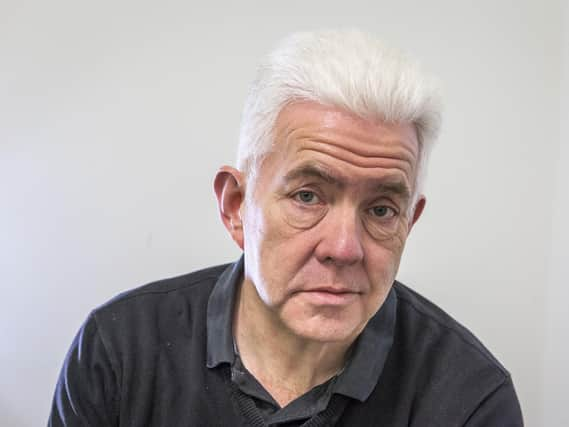The New Apocalyptics and the power of poetry - Ian McMillan


“I have come a long way from the blood’s tidal voice/Moaning and wailing across the salt flats of the mind;” Or how about these? “I planted dragonteeth: and men of metal/armoured with anger climbed from the sullen ground.”
The first words were written by Henry Treece and the second by DS Savage, and they’re from a fabulous new anthology called Apocalypse, edited by James Keery.
Advertisement
Hide AdAdvertisement
Hide AdThe book is a wide-ranging selection of the poets, mainly of the 1940s and 1950s, who became known as the New Apocalyptics and whose work I devoured hungrily when I was a teenager. That Treece phrase “the salt flats of the mind” is easily parodied (“The settees of my existence”, “The garden shed of my soul”) but it still resonates for me now, so imagine its impact on the wistful 15-year-old that I was when I first came across work like this in half-forgotten books and magazines.
“The men of metal armoured with anger climbed from the sullen ground.” Blimey! Looked at now, from the vantage point of grey hair and 64 years on the planet, the lines of many of the poems in the book seem overwritten, overwrought and a bit too loud and symphonic, but that’s not how they felt when I first encountered them.
In his introduction, Keery cites Dylan Thomas as the de facto founder of the New Apocalyptics and I think he’s right; there’s something about Thomas’s word-drunk (and often physically drunk, although he said he never wrote under the influence of alcohol) language that feels designed to appeal to a certain kind of sensibility.
Keery cites Thomas’s poem The force that through the green fuse drives the flower as a touchstone of the movement, and I have to agree.
Advertisement
Hide AdAdvertisement
Hide AdI almost know the poem off by heart because I read it so often in my teens. It begins “The force that through the green fuse drives the flower/Drives my green age; that blasts the roots of trees/Is my destroyer.”
And although I’m still not quite sure what those words mean, they still have a profound effect on me; they’re like music heard from another room, the rhythm insistent but somehow muffled, the intent of the poet hidden and wearing a mask like we all do these days.
And that kind of language makes for an intoxicating kind of poetry, one that feels very different from the poetry of “I did this, I did that”, which I also like very much but is its polar opposite.
The New Apocalyptics faded away when sparser, more careful verse came to the fore.
Advertisement
Hide AdAdvertisement
Hide AdHowever, this anthology reminded me how much I loved this kind of work and, in an apocalyptic era, maybe its time has come again. Where’s my lurid pen?
Support The Yorkshire Post and become a subscriber today. Your subscription will help us to continue to bring quality news to the people of Yorkshire. In return, you'll see fewer ads on site, get free access to our app and receive exclusive members-only offers. Click here to subscribe
Comment Guidelines
National World encourages reader discussion on our stories. User feedback, insights and back-and-forth exchanges add a rich layer of context to reporting. Please review our Community Guidelines before commenting.